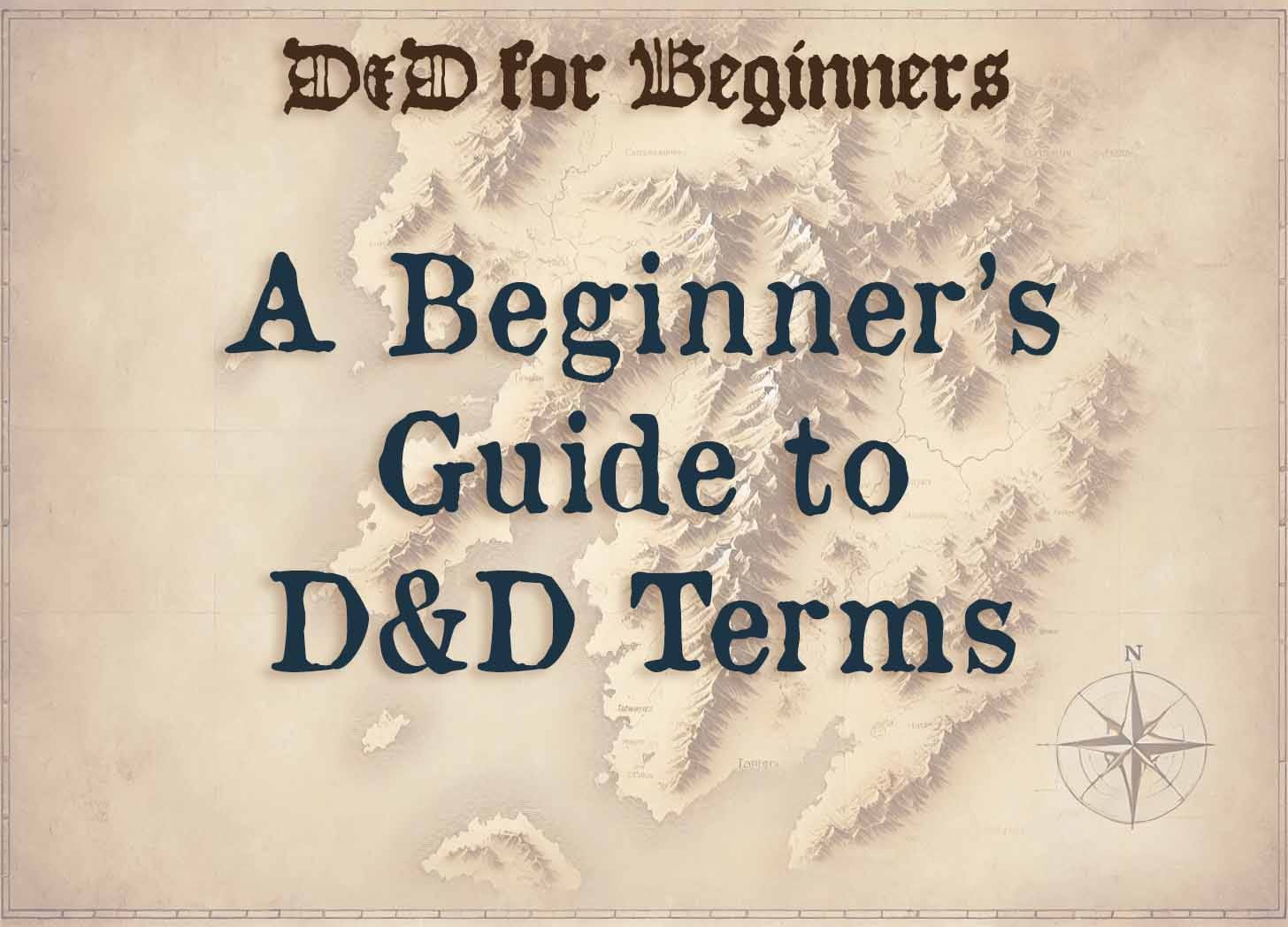A Beginner’s Guide to D&D Terms
You sit down at the table, dice in hand, ready to play your first game. Don’t let the jargon slow down your first adventure.
Greetings, aspiring adventurer!
So you’ve decided to embark on the grand adventure that is Dungeons & Dragons?
Excellent choice. A noble pursuit. Perhaps even the first wise decision you've made—though I wouldn’t bet much gold on it.
Before you go swinging swords at goblins or attempting to seduce a dragon (please don’t), you must first learn the language of the game. Otherwise, you'll be standing there like a lost villager while the party discusses "saving throws" and "casting cantrips."
So please allow me, the learned and sagacious Professor Richard Crackfang, to enlighten you.
The Cast of Characters
DM (Dungeon Master): The poor fool who controls the game, the story, and the monsters—and who you will inevitably annoy with absurd ideas. It’s important to remember the DM is a player, just like you, who is here to have a good time with friends, just like you.
In other tabletop role-playing games (TTRPGs), this person is the Game Master because D&D’s owner, Wizards of the Coast (WotC), has trademarked the term “Dungeon Master” and is notoriously lawsuit happy. Unfortunately, you’ll see this a lot... like ever wonder why D&D has a Beholder monster, but all the indie games have something like a “floating eye stalk monster”? Yep. Thanks, WotC lawyers.
PC (Player Character): That’s you... kinda. It’s the character you portray, the hero, the rogue, or the deranged bard trying to seduce a gelatinous cube (again, please don’t).
NPC (Nonplayer Character): Any character other than a PC. NPCs are played by the DM.
BBEG (Big Bad Evil Guy): The main antagonist
Murderhobo: A player who ignores the story and just kills everything for the loot. (These types rarely live long in most DM’s campaigns…)
HP (Hit Points): Your life force. Run out, and you’d better hope someone has a cure wounds spell… or a shovel.
AC (Armor Class): How hard you are to hit. If it’s low, invest in plate armor—or develop a good relationship with your deity.
The Essentials
Session: When you get together with friends to play. A session often lasts 3–4 hours, but can go much longer depending on how absorbed the group gets.
One-Shot: A self-contained story that can be completed in one session
Adventure: A quest that can usually be completed in a session of two
Campaign: The big-picture story made up of connected adventures
PHB (Player Handbook): The official overpriced Dungeons & Dragons rule book.
RAW (Rules As Written): Playing by the book, the PHB. D&D is unique in that the DM can (and often does) alter or ignore the written rules. This is called Homebrew or Table Rules.
DC (Difficulty Class): How easy or difficult something is to accomplish—the number to meet or beat on a d20 to do something.
The Dice
d20: The sacred 20-sided die that determines your fate. Roll high, and you're a legend. Roll a 1, and you trip over your own feet while attacking.
d(#): A die with that number of sides. A d6, for example, is a 6-sided die. A typical set of D&D dice includes a d4, d6, d8, two d10, d12, and a d20. The two d10 allow you to roll them together and get a 1–100 percentage.
Crit (Critical): A roll of 20 (Critical Success), which means double damage and much rejoicing, or a roll of 1 (Critical Failure), which often means an unintended (and sometimes comedic) consequence.
Spells & Sorcery (for the magically inclined)
Cantrip: A spell so basic even first-year students can cast it. Infinite use, but low power—like a magical slap.
Spell Slot: The limited number of spells you can cast before needing a nap.
Concentration: If a spell requires this, it means you can’t cast another big spell—or get hit too hard—without losing your focus.
AOE (Area of Effect): A spell that hits multiple enemies at once. Fireball is a classic example—one that has ruined many friendships.
Combat & Chaos
Initiative: The d20 roll that decides who acts first in combat. You want a high number—unless you enjoy watching your allies die before your turn.
Action, Bonus Action, Reaction:
Action: Your main move (attack, cast a spell, etc.).
Bonus Action: A small extra move.
Reaction: Something you do outside your turn, like dodging or screaming in panic.
Tank: The heavily armored party member who absorbs damage.
DPS (Damage Per Second): The party member who dishes out the pain.
Glass Cannon: A character that hits hard but crumples like wet parchment when hit.
Final Wisdom from the Professor
Now that you have a basic grasp of D&D terminology, you are one step closer to not embarrassing yourself at the table. Congratulations.
Use this knowledge wisely, and remember: If you don’t understand a term, just ask your DM.
Until next time,
-- Professor Richard Crackfang
Scholar. Wizard. Definitely Not a Brute Named Lump.


